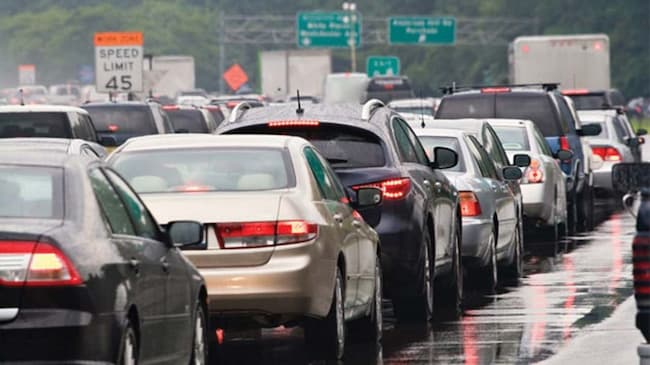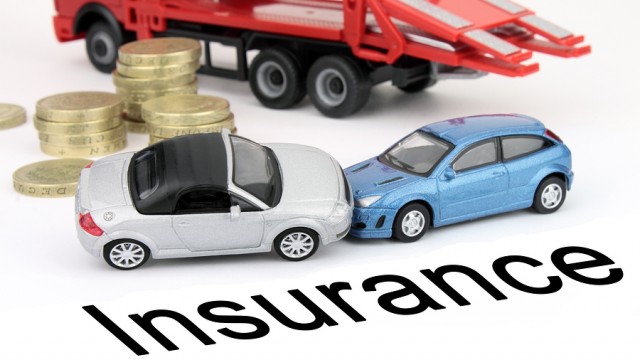There’s no denying that auto insurance is very important for driving your car. With the accident rates climbing so high, reaching millions of passenger car accidents every year. But are there any legal ramifications for driving a car without the proper vehicle insurance? Can you get fined, or worse, get into jail for not having auto insurance? Let’s find out.
Driving with a proper car insurance policy is correct, but it is only a half-truth. While some auto insurance policies are mandatory depending on the state you live in, there are many optional car insurance policies that you might not need. In this article, we’ll cover the entire topic in detail so that you can make the right purchase, and avoid buying policies you don’t need.
The Mandatory Policies
Depending on the state you live in, you would be required to have either one or two vehicle insurance policies to legally drive the car. Getting caught driving without these policies can land you in trouble. From simple tickets to heavy fines and even suspension of your driving license, anything can be imposed on you.
But it is not the fine that should worry you, but the mountain of financial issues that would fall on you that should make you scared. Let’s look at the different policies.
Liability Insurance
The most common and popular auto insurance policy is liability insurance. If you reside in any state other than New Hampshire, you are legally required to own a liability coverage policy that meets the minimum coverage limit threshold.
Each state has its minimum coverage limits. For example, if you live in California, you are required to get liability coverage with the coverage limit of 15/30/5, meaning $15,000 for bodily injuries per person, $30,000 for bodily injuries per accident, and $5,000 for property repairs.
Higher minimum coverage limits can increase insurance rates. Everybody wants affordable auto insurance rates, but to get it, you need to search for the best options in your state. So for people in California, look for the best insurance options in California to find the best rates for a great car insurance policy.
If you are caught driving without liability coverage in states where it’s mandatory to have it, you could be fined as much as $500, and get a class 3 misdemeanor conviction. It could also tank your insurance rates. But the worst is getting in a car accident without liability coverage.
Being the at-fault driver in a car accident means that you are liable to pay for the cost of the accident for the other driver. This includes the cost of all the property damage (car damage, etc) and medical treatment bills. These costs can go as high as $500,000. Getting in a car accident is bad enough, you do not want to land in a financial and legal accident as well.
Personal Injury Protection Plan
If you get in a car accident and the injuries are serious, you can expect a hospital bill that could match your entire year’s paycheck. If the fault is of the other driver, you can claim their liability coverage for medical treatments. But what if the other driver is underinsured, or worse, uninsured? You can skip car repairs, but medical treatments cannot be discarded for high costs.
Twelve states in the US, called “no-fault” states, require you to have a personal injury protection plan. These states include New Jersey, Kentucky, North Dakota, Massachusetts, Hawaii, Kansas, Michigan, New York, Florida, Pennsylvania, Minnesota and Utah. So driving without a personal injury protection plan can result in fines and suspension of your driving license.
People who already have MedPay might be confused as to what makes personal injury protection different from MedPay. While both policies are very similar, personal injury protection covers lost wages as well.
Uninsured Motorist Coverage
Another great auto insurance policy that prevents complications in case you get in a car accident with an uninsured driver is uninsured motorist coverage. Even though it is mandatory to have liability coverage, there are more than 32 million uninsured drivers in the US. So the chances of you bumping (literally) into someone without liability coverage are very high.
Fourteen states require you to carry uninsured motorist coverage to legally drive a car. These states include Connecticut, Minnesota, Nebraska, New Jersey, North Carolina, North Dakota, Oregon, Maine, Maryland, Massachusetts, South Dakota, Vermont, Virginia, and Wisconsin.
Uninsured motorist coverage policy can be claimed if the driver at fault either lacks a liability insurance policy or has one but the coverage is not enough to completely pay for the cost of the accident. In case of a hit-and-run accident, this policy can be claimed as well.
Optional Policies
Optional auto insurance policies are the ones that you can choose to buy or skip these policies depending on your needs. Since these policies are optional, it is completely legal to drive your car even if you do not own any of these policies. So what are these insurance policies?
Collision Insurance
A collision damage waiver covers the cost of the repairs needed for your car after you get in a road accident. This policy can be claimed even if the accident was your fault. So whether you are at fault or not, you can claim your collision damage waiver if you have one. It also includes hitting a pole or tree, or even damages due to bad road conditions.
While collision coverage is optional, it is highly recommended that you get this policy if your car is new, and the cost of repairs is high. People with old cars can skip this policy.
Comprehensive Coverage
Comprehensive insurance covers the repairs of all the damages to your car that might happen while it is parked. This includes damages due to projectile, animals, riots, vandalism, theft, etc. It also includes coverage for damages due to natural disasters such as earthquakes, hurricanes, floods, even volcanic eruptions, etc. So get yourself a comprehensive insurance policy if you need it.













